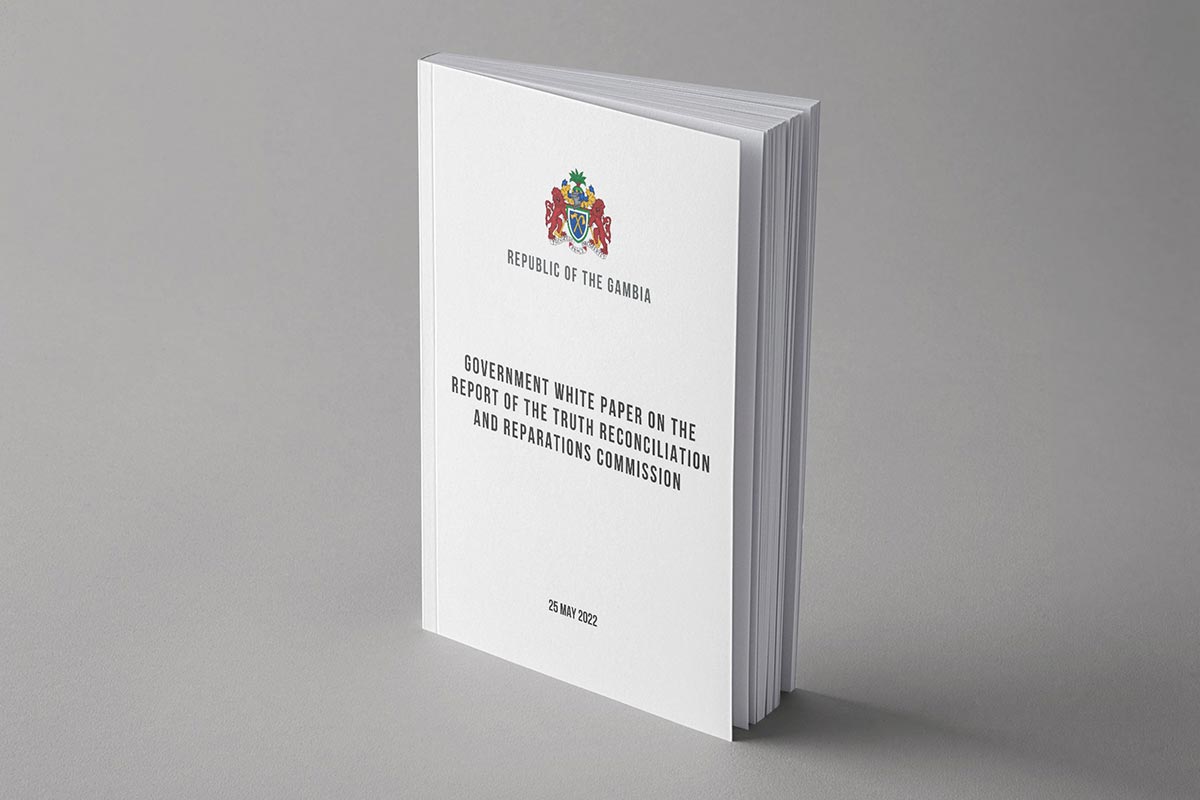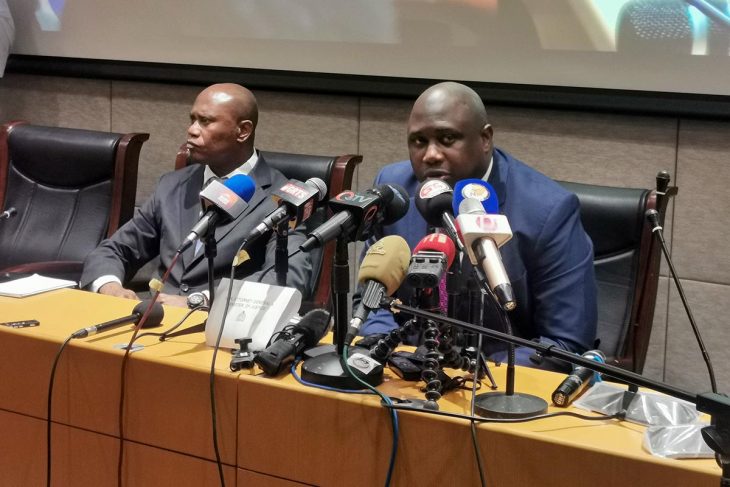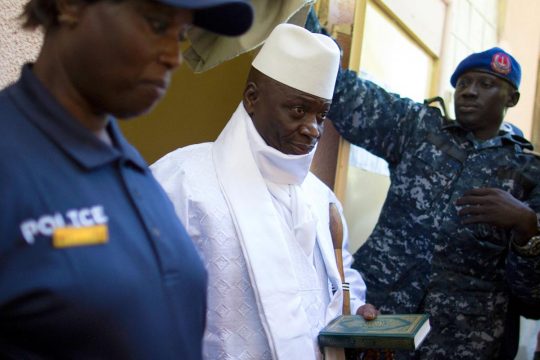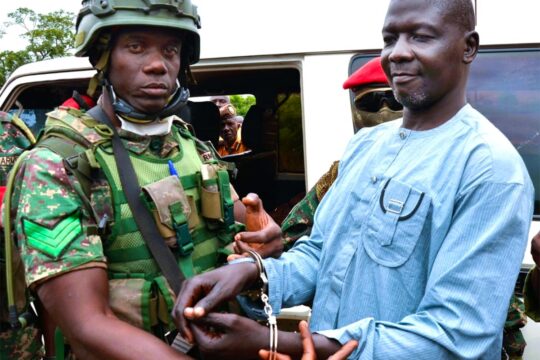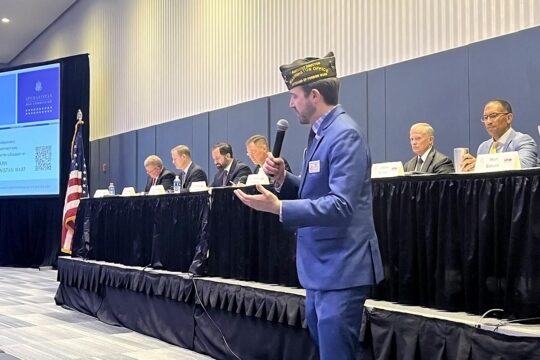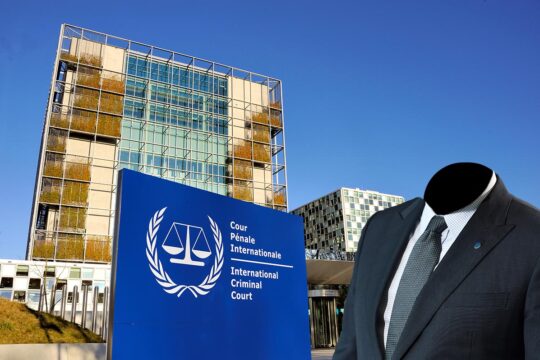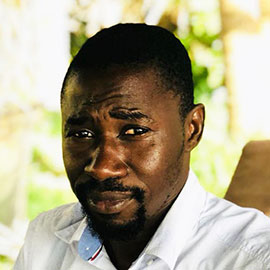After five months of silence, the Gambian authorities yesterday published a position paper expressing intent to implement the recommendations of the Truth, Reconciliation and Reparations Commission (TRRC), “notably the prosecution of ex-President Yahya Jammeh, for a myriad of crimes committed between 1994 and 2017” and of several other top officials for murdering dozens of citizens during his 22-year rule.
Jammeh, living in exile in Equatorial Guinea since January 2017, ruled the small West African country with an iron fist, using a paramilitary hit-squad called the Junglers which disappeared at least 103 people, according the report of the Truth Commission, released last year on Christmas Eve. At least 232 people were found to have been murdered by state agents from July 1994 to December 2016 - the precise period that falls under its mandate.
“The government accepts all the recommendations by the TRRC with regard to prosecution, notably the prosecution of ex-President,” states the government position paper.
According to this document, Jammeh’s crimes include at least 19 incidents of illegal executions by Junglers: execution of 12 soldiers; unlawful killing of former Finance Minister Ousman Koro Ceesay; killing of at least 17 road users; killing of 15 students; murder of journalist Deyda Hydara; murder of 67 West African migrants; random execution of 27 other people; 41 deaths caused by the Presidential Alternative Treatment Programme for AIDS; and 41 deaths caused by witch-hunting.
Several torture charges were also approved to be brought against Jammeh. In addition, he faces at least two rape cases.
"The crimes of which Yahya Jammeh has been accused, including widespread murder, torture, rape and arbitrary detention, clearly constitute crimes against humanity," said Reed Brody of International Commission of Jurists. Brody, instrumental in bringing ex-Chadian dictator Hussein Habre to justice, has been working with Jammeh’s victims to help them mobilise support to bring him to justice.
Special prosecutor’s office
The 178-page government white paper fell short of detailing how, when and where these prosecutions were to happen. “The government intends to create a special judicial framework within our domestic court system for the prosecution of perpetrators of human rights abuses and violations,” said the government’s position paper. “The [special] court shall be located within the Gambia with the option of holding sittings in other countries based on the exigencies of each case.” Based on this model, Jammeh can be prosecuted in Ghana, Senegal or Nigeria over murder of their citizens in 2005.
The prosecutorial task will be handled by a special prosecutor under the Ministry of Justice. “The special prosecutor’s office shall be aided by a special investigations unit under the Ministry of Justice,” said the government. The office will have local and international experts to guide and conduct its investigations and prosecutions, it also said. And the government promised several legislative amendments including the enactment of the torture laws.
Already, the Jammeh-era crimes have been tested before the courts. Yankuba Touray was convicted in the country for the murder in June 1995 of former Finance Minister Ousman Koro Ceesay. Bai Lowe - a former Jungler - is currently facing charges in Germany of crimes against humanity for involvement in the murder of journalist Deyda Hydara in December 2004. Seven top heads of the National Intelligence Agency are standing trial in Gambia for the April 2016 murder of Ebrima Solo Sandeng.
Abroad, prospective cases hang over Ousman Sonko, Jammeh’s longest serving interior minister, in Switzerland, and Michael Sang, a Jungler currently detained in the United States.
Three recommended for amnesties
The Truth Commission made 265 recommendations, of which the government formally rejected only two. One was a request to amnesty Sanna Sabally, the former vice chairman of the military junta. The government also rejected the TRRC’s qualification of judges who helped Jammeh as “mercenary judges”.
The government accepted three amnesty recommendations from the TRRC: for two junior soldiers implicated in November 11, 1994 executions, Baboucarr Mboob and Zakaria Darboe; and for a soldier involved in the 1995 torture of political detainees, Major Bubacarr Bah. The government also accepted to grant Alagie Kanyi immunity on the basis of the willingness he expressed to testify on the murder of Ousman Koro Ceesay and the November 11 execution of soldiers. He was involved in both executions as a junior soldier and was a star witness for the state in the murder trial of Yankuba Touray.
The government’s decisions are not without controversy. It refused to penalize the current head of the National Intelligence Agency for tampering with evidence. Justice Minister Jallow argued that the evidence tampering charge against Ousman Sowe came in May 2017, falling outside the timeframe the Commission is mandated to investigate. However, critics contend that his conduct violates the TRRC Act.
The second controversial position was the refusal of the government to penalize Yankuba Sonko, who was until recently Interior Minister, for his involvement in the cover-up of the killings of the West African migrants. Sonko was recommended to be banned from public office for 10 years but the government declined.
Meanwhile, the position paper said there is also a possibility of granting amnesty to some Junglers, depending on how useful they are to the state’s prosecutorial plans.
For instance, the Commission recommended for a denial of Malick Jatta’s application for amnesty “on the basis that although he gave full disclosure, showed remorse and helped the Commission in its investigation, his acts form crimes against humanity.” But the Commission further recommended “that the State could grant him immunity should it wish to use him as a witness.” On his specific case, the government said that it “will evaluate Lieutenant Malick Jatta’s utility as a witness in line with its prosecution strategy”. The same immunity deal is being evaluated for Junglers Omar Jallow and Pa Ousman Sanneh.
‘Jammeh deserves a day in dock’
According to the government’s commitments, Jammeh will not be the only person to have his days in the dock. All his accomplices in the military and former top officials connected to rights violations, including former vice president Isatou Njie Saidy, are to be prosecuted for past rights violations.
Fatou Barrow is a 22-year old daughter of Omar Barrow, a Gambian Red Cross volunteer who was shot dead on April 10, 2000. Fatou was 5 months old when he was murdered.
“I have heard stories about how he was a good man and ambitious… I have heard he was always ready to help people,” said Fatou. “You can imagine the pain in my mother’s heart when she was just 22 years old and widowed with a 5-month old baby. That is not easy. Jammeh and others should face justice.”
The when, how and where is still sketchy. But yesterday, Fatou was pleased to learn that the Gambian government had undertaken to bring to justice Jammeh, ex-vice president Isatou Njie Saidy, ex-interior minister Ousman Badgie, and ex chief of defence staff Babucarr Jatta.
Now, the former leader lives under the protection another dictator, in Equatorial Guinea. No international warrant has been issued, and no extradition request made. It has not even been decided whether Jammeh will be prosecuted in the country or elsewhere in the region.
“The government could make it very difficult for Equatorial Guinea to resist a demand for Jammeh’s extradition by lining up the support of ECOWAS and the entire region, in particular countries like Ghana, Nigeria, Senegal, Togo, Liberia, Sierra Leone and Cote d’Ivoire whose migrants were allegedly murdered under Jammeh’s orders,” said Brody. “A request coming from an ECOWAS or even an AU-backed court would be very difficult to refuse, but the impetus, the initiative, has to come from the Gambian government.”
